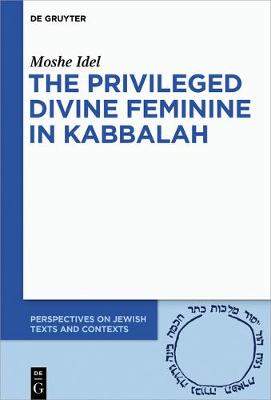Perspectives on Jewish Texts and Contexts
1 primary work • 2 total works
Book 10
This volume addresses the complex topic of the preeminent status of the divine feminine power, to be referred also as Female, within the theosophical structures of many important Kabbalists, Sabbatean believers, and Hasidic masters. This privileged status is part of a much broader vision of the Female as stemming from a very high root within the divine world, then She was emanated and constitutes the tenth, lower divine power, and even in this lower state She is sometime conceived of governing this world and as equal to the divine Male. Finally, She is conceived of as returning to Her original place in special moments, the days of Sabbath, the Jewish Holidays or in the eschatological era. Her special dignity is sometime related to Her being the telos of creation, and as the first entity that emerged in the divine thought, which has been later on generated. In some cases, an uroboric theosophy links the Female Malkhut, directly to the first divine power, Keter. The author points to the possible impact of some of the Kabbalistic discussions on conceptualizations of the feminine in the Renaissance period.
The special affinities between Maimonides' esotericism and Abraham Abulafia's Kabbalah show the deep impact of the former on the latter. The early studies of Abulafia in medieval philosophy, especially Neoaristotelian one, have been analyzed for the first time. The book surveys main topics in Judaism as interpreted by Abulafia: Hebrew language, Torah, the people of Israel, Paradise, in the light of Maimonides' esotericism. It claims that Abulafia was a radical Maimonidean thinker for his entire career and revealed, in some cases, the hidden philosophical agenda of Maimonides, as he understood it. The universal aspects of Abulafia's thought have been put in relief, unlike those of most of other Kabbalists. Some of the texts used in this exposition are still in manuscripts, and they have been identified here for the first time as authored by Abulafia.. His study is intended for students of medieval philosophy, Kabbalah, esotericism, especially in Spain, Byzantine Empire, Italy and Sicily, in the 13th century.

